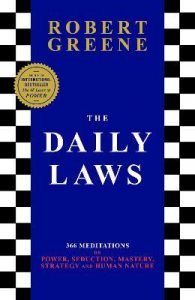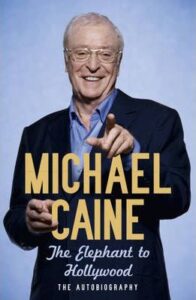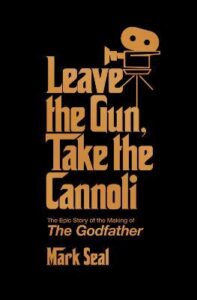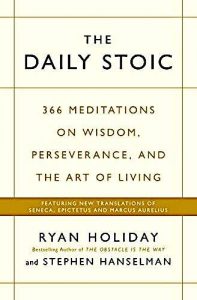It would be a gentle whisper from behind you. It was coming in almost direct opposition to all that you see in front of you. It is an event that has been weeks in the planning. The senate would ordain it and the city would pay. But for you, it would be a time of glory. Once again, you had established Roman Dominance in the western world. Here the ancient city would publicly celebrate and sanctify your success as a great military commander. The Roman Triumph a giant spectacular parade. Yet behind you would be an aid whispering in your ear “remember thou art mortal”.
“You are not a god, not all-powerful; you will not live forever – you will die. All things are temporary and what matters is character.”
Talk about trying to keep yourself grounded.
As the Roman Republic would transition into the Empire, it would seem that this tradition of keeping your mind in check would continue. The Romans had transported Greek philosophy to Rome as its power grew. The value had been seen by many, as a way to understand how to govern an ever-growing empire.
Caesar Augustus (23 September 63 BC – 19 August AD 14) was the first Roman emperor, reigning from 27 BC until he died in AD 14. He has been seen by many as the greatest of all Roman emperor’s and perhaps, the most effective and controversial leaders in human history. He grew up schooled in philosophy. On the assignation of Julius Caesar, on his rise to power took his teachers and mentors with him. Athenodorus Cananites and Arius Didymus both Stoic Philosophers have been called Kingmakers by some and given Augustus reign would be the longest, you could argue he had good teachers. Character is fate.
Throughout history, leaders have advisers and mentors. Even King Arthur has Merlin – a sage and “magician”. Not all of them have been good advisers – we can all remember Grigori Rasputin and his negative impact on the Russian court. It is suggested that his influence and poor advice precipitated the overthrow of the Romanov Dynasty and the ultimate takeover by the Communist party. So not all advisors are okay or have their leaders’ best interest at heart. Not all leaders take the advice of mentors and in Roman days would send them to exile or death.
Elite athletes have specialized personal coaches; they have nutritional advisers plus sports physiologist – all to help them perform the best at their job.
But what about us? Most of us just float about with the tools we learnt in our first 20 years, depending on our childhood experiences that could be good, very good, or pretty bad. But more likely a combination of both.
Most of us wait until something goes wrong and, in some cases, very wrong.
It is caused by our own mistakes—a twist in life’s circumstances. Perhaps an unexpected death or disease, a loss of a job, or as I write this the 2020 pandemic. We then spend time rushing about trying to find solutions, often ill-equipped and with limited funds. So what to do?
I suggest that you build a team of advisers just like the Caesars of old – to be the “magic secret” to creating a life of meaning and happiness. To develop a storehouse of knowledge and health so when things go wrong – you are welled prepared, but most importantly when things are going well, you are getting great advice, and are at the top of your game to gain the most from life. It will encourage you to be proactive in your approach to life. If you see a problem starting to make itself known, you can get to it early. If there are parts of your life that are not working to the maximum, you will have the confidence to address them. You will know how to find support.
I suggest building a team that has practitioners that cover all aspects of life, both physical, mental and spiritual.
We often find the most difficult one is the mental one – the one that deals with feelings and the way we see life. It is often the one that will we delay until its really bad. Why do we do that? Society stigma is still quite strong about seeking mental support. Yet it is the area will often bring the richest rewards.
Yet in reality, health is just health – everything affects everything else, so if your diet is lacking, your mental health will be weak. Your mental health is low; then you make poor relationship choices. Your unhappy your physical health is inadequate as well.
Be a leader, a Caesar, in your own life actively seek council to build a team to help you be your best.
So?
How to build a team? What type of people do I look to include?
After my first business loss and then, a few years late, as my health started to decline, I developed a team of people to support me. I created my list of criteria on which to judge whether the practitioner or coach was the right fit for me. I found people to guide me in my total health, the mental, the physical and the spiritual. Sometimes I was lucky enough to have them in the same person and at times, a combination of people. A good practitioner will know their limitations, and more than likely will have contacts that can support you as well.
So what are my criteria?
- The must-have significant life experience – they must have overcome their own struggles. If you want to learn how to fish – ask a fisherman. I didn’t want people whose life had been too kind too. The best coaches and teachers don’t generally come from the best players on the team. They typically come from the players who have to work hard to stay on the team. They can’t rely just on talent; they have to learn every aspect of the game to be good.
- They must be at the top of their professions in some way – always looking to push the boundaries – explore – increase their knowledge
- I didn’t want them to be limited by the framework – the world view – of their modality. All modalities have their limitations. They have come out of cosmology and way of seeing life and find answers to a given set of circumstances and problems. Life is ever-changing. I want practitioners and coaches who challenge their thinking and world view. I am then not asked to conform to anything but to grow and explore life continually.
- They must be interested in me and my life.
- The must be courageous enough to let me go when I have reached their capacity.
As you think about these ideas, you may come up with other things to add to your list of criteria. The most important thing is to start. Don’t let life tick away from you. The earlier you have a team of mentors, the cheaper it is in finances and life problems. You will handle difficulty and success more comfortably.
Some people eat their spinach first, aka they pick people to help them in the area’s they are most afraid to tackle. Others of us need to build up the confidence first – tackle something easy—the most important thing is to start.
Be like a great leader in your own life. Take your team with you as you grow through experience. Start early.
There are Twenty-Five Thousand days in the average life. Why would you want to invest those limited days going down a path where good advice could have saved you?
As the Chinese say – “Dig The Well Before Your Thirsty.”
“You are under no obligation to remain the same person you were a year ago, a month ago, or even a day ago. You are here to create yourself continuously.”
—Richard Feynman, 20th Century American theoretical physicist
Resources:
“The Daily Stoic” – Ryan Holiday & Stephen Hanselman
“Lives of the Stoics” – Ryan Holiday & Stephen Hanselman
“Dig The Well Before Your Thirsty” – Harvey MacKay
Check out the Books on my Free PDF – you won’t regret it. Subscribe below.
Photo by Federico Di Dio photography on Unsplash







